Scientific research at the Faculty of Electric Engineering
National and international cooperation
The Faculty of Electrical Engineering maintains contacts and develops cooperation with the faculties of other Polish universities that research and provide education in similar academic fields. Cooperation includes graduation with doctor degrees, exchange of experience, consulting curriculums and offering students open access to the unique laboratories of each particular university. An important part of this cooperation is the participation of the academic staff of other universities in scientific seminars organised by the Faculty Departments. Representatives of the Faculty participate in the activities of various consultancy bodies such as the National Convention of Deans of Electrical Faculties of Polish Technical Universities. Many of the Faculty staff also participate in the work of national and foreign scientific organisations.
Particular Departments, depending on their scientific profiles, develop international cooperation with foreign academic and research centres. Representatives of the Faculty also participate in the work of the Institute of Electrical and Electronic Engineers (IEEE), the Institution of Engineering and Technology (IET), the International Centre for Engineering Education (a UNESCO agency), IMO–NCSR and HTW Subcommittees, the International Mobile Satellite Organisation (IMSO) and more.
The cooperation with foreign centres results interuniversity scientific and research projects, joint presentations in international conferences, co-organisation of conferences and exchanges of employees and students.
Gdynia Maritime University is an important educational and scientific partner of the company Navimor International Com. The University cooperated with the company on an international project to create and open the Fishing and Sea Sciences Academy in Namibe, Angola. The GMU Faculty of Electrical Engineering significantly contributed to the realisation of this project. During the first stage of the project (2008‒2010) scientists from University developed the organisational concept and operation plans, both for teaching and scientific research, for the Academy as well as preparing overall plans and the teaching curricula. The second stage (2013‒2018) involved research and development works of an engineering and technology and expert-consulting character, elaboration of a unique series of 28 academic course books in Portuguese dedicated to the selected subjects for 14 specialisations in three Faculties: Fishing, Fish Processing, and Water Resources of the new Academy. This stage also involved the education and training at GMU of future teaching staff for the Academy's 2nd and 3rd-cycle degree courses.

